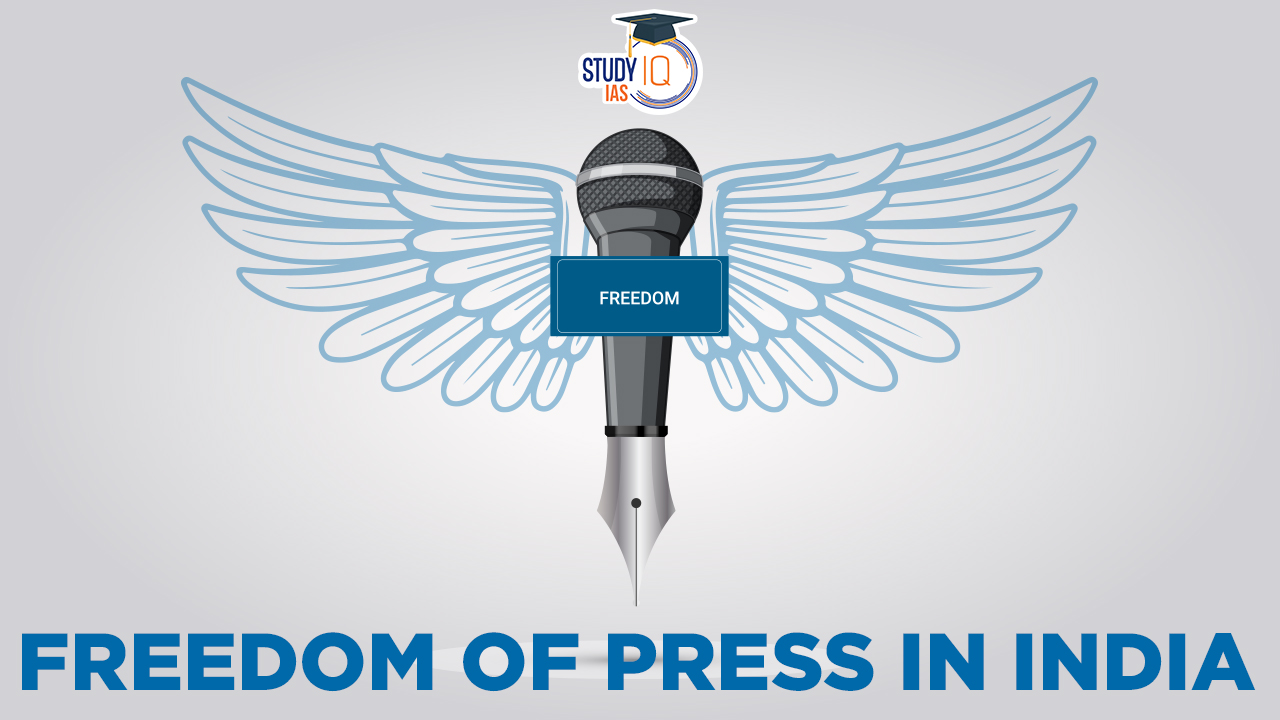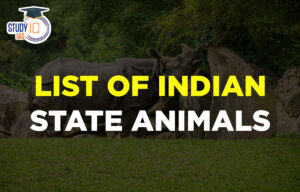Table of Contents
Context: India’s rank in the World Press Freedom Index 2023 has witnessed a fall, attaining 161st rank out of 180 countries.
Decoding the News: Press Freedom Index
- Press Freedom Index is an annual report released by Reporters Without Borders (RSF). The index aims to compare the level of press freedom enjoyed by journalists and media in 180 countries and territories.
- RSF is a Paris-headquartered international NGO whose self-proclaimed aim is to defend and promote media freedom.
- Basis of evaluation: Calculation is based on five contextual indicators: political context, legal framework, economic context, socio-cultural context and safety.
- Important trends:
- Norway, Ireland and Denmark occupied the top three positions, while Vietnam, China and North Korea made up the bottom three.
- In India’s neighborhood, Pakistan was placed at 150, while Sri Lanka improved its ranking to 135th this year as against 146th in 2022.
Freedom of Press
- According to Reporters Without Borders (RWF), press freedom is defined as “the ability of journalists as individuals and collectives to select, produce, and disseminate news in the public interest independent of political, economic, legal, and social interference and in the absence of threats to their physical and mental safety”.
- Constitutional basis of Freedom of Press
- The Constitution of India guarantees freedom of speech and expression under Article 19, which deals with ‘Protection of certain rights regarding freedom of speech, etc.
- Freedom of press is not explicitly protected by the Indian legal system but it is implicitly protected under Article 19(1) (a) of the constitution, which states – “All citizens shall have the right to freedom of speech and expression”.
- However, Freedom of press in India is also not absolute. Restrictions are placed on Article 19(2) on following conditions:
- Interests of the sovereignty and integrity of India
- The security of the State
- Friendly relations with foreign States
- Public order
- Decency or morality
- Contempt of court
- Defamation or incitement to an offence
Judicial Opinion on Freedom of Press
- In Romesh Thaper vs State of Madras and Brij Bhushan vs State of Delhi, the Supreme Court explicitly stated that the freedom of the press was an essential part of the right to freedom of speech and expression.
- Freedom of speech and expression included propagation of ideas, and that freedom was ensured by the freedom of circulation.
- In Union of India v/s Association for Democratic Reforms, the apex court said that freedom of speech and expression includes the right to impart and receive information which includes freedom to hold opinions.
- The court said that Freedom of press has three essential elements:
- Freedom of access to all sources of information
- Freedom of publication
- Freedom of circulation
- The court said that Freedom of press has three essential elements:
- In Sakal Papers v/s Union of India, the court observed that the Daily Newspapers (Price and Page) Order, 1960, which fixed the number of pages and size which a newspaper could publish at a price, was held to be violative of freedom of press and was not a reasonable restriction under the Article 19(2).
Importance of Freedom of Press
- Uphold people’s right: Press freedom is important to raise concerns about violation of people’s right. In absence, such rights get suppressed under the might of the state.
- Accountability of the government: Accountability is the basic feature of democracy and government of the day must be held liable for their actions. This can only be ensured through freedom of press.
- Propagating ideas: Press is a medium of communication that allows propagation of ideas among the citizens. New ideas allow the democracy to flourish.
- Foundation of democracy: Press/media is the fourth pillar of democracy as it acts as a bulwark against state power. It also acts as a link between the government and the people.
- Awareness creation: Free press keeps citizens educated about happenings around the world as well the country.
Challenges/Threats to Freedom of Press
- Fake news: The trust of citizens on press has deteriorated due to increasing instance of fake news. It is becoming challenging to separate real news from fake ones.
- Paid news: Politicians and influential people use their money power to plant news that is favourable to them. This has converted media into propaganda machinery.
- Attack on journalists: Journalists have lost their lives for exposing misdeeds of people in power. Such attacks have deterred them from performing their duties.
- Corporate control: Influential media channels are being acquired by rich corporate. This reduces their independence, making them tool in the hands of powerful personalities.
- Political bias: Many media companies are owned by individuals having close
Government’s measures to Control Press
- Draft IT Amendment Rules 2023: It allows the IT ministry to appoint the fact-check body, which has powers to label online content related to the Union Government as “fake” or “misleading”.
- If any piece of information is marked as fake by the fact check unit, online intermediaries will be required to take it down.
- IT Amendment Rules 2022: Social media intermediaries are required to address complaints regarding the removal of specified prohibited content within 72 hours.
- In case of failure, the intermediaries will lose their safe harbor provisions under Section 79 of the IT Act 2000.
- Section 69A of IT Act 2000: It gives powers to the Central and State governments to issue directions “to intercept, monitor or decrypt any information generated, transmitted, received or stored in any computer resource”.
Way Forward
- Declining press freedom is a concern for India, as it showcases the country in poor light. Despite the concerns around the methodology of the index, the quality of press has significantly declined in India.
- Self-regulation: To reinstate trust in press, media companies must come together to self-regulate their activities. Actions must be taken for failure to perform their duties.
- Safety of journalists: Efforts must be made by the government to increase safety of journalists. This will enable them to perform their duties without fear.
- Reduce state control: India is one of the top countries where cases have been filed against journalists. Constructive criticism of policies must be allowed, ensuring journalists perform their duties independently.
- Attaining media freedom: Establishing plurality in ownership, better legal frameworks, and steps to reduce the influence of vested interest groups are needed to restore independent media.


 Daily Quiz 17 April 2025
Daily Quiz 17 April 2025
 Nilgiri Biosphere Reserve, Map, Climate,...
Nilgiri Biosphere Reserve, Map, Climate,...
 Complete List of Indian State Animals
Complete List of Indian State Animals





















